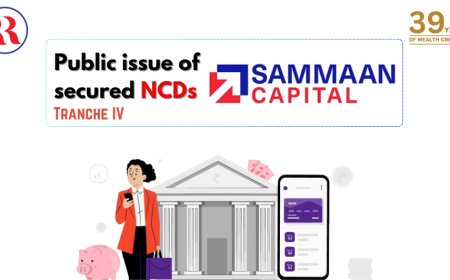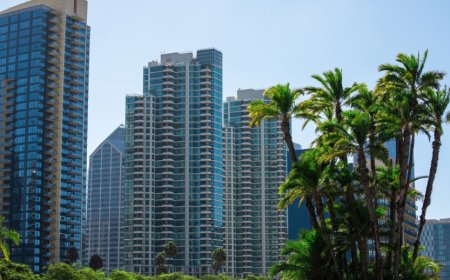Data-Driven Coastal Management: Chennai’s Edge in Marine Intelligence
Learn marine data skills with a data scientist course in Chennai. Tackle coastal challenges, monitor erosion, predict floods, and build smart, resilient coastal systems.
Chennai, with its long coastline along the Bay of Bengal, plays a vital role in Indias maritime activities. From fishing communities and shipping operations to marine conservation and coastal infrastructure, the citys relationship with the sea is dynamic and complex. As climate change, urbanisation, and industrial activity place mounting pressure on coastal systems, data-driven solutions are emerging as a powerful tool for sustainable coastal management. Chennai is at the forefront of integrating marine intelligence and data science to monitor, manage, and protect its coastal zones. For individuals seeking to contribute to this evolving field, enrolling in adata scientist course in Chennai provides a clear pathway to be part of this transformative work.
Lets explore how Chennai is leveraging data science for coastal resilience and why marine intelligence is becoming a cornerstone of environmental and economic planning.
The Need for Smarter Coastal Management
Indias coastal cities face numerous challengesrising sea levels, coastal erosion, saline intrusion, habitat degradation, and the growing impact of extreme weather events. Chennai, having faced severe floods and cyclones in recent years, understands the urgency of building robust systems for coastal protection.
Traditional coastal management relied heavily on periodic surveys and manual data collection, which often lacked accuracy and timeliness. Today, digital tools such as remote sensing, satellite imaging, and AI-powered analytics are allowing policymakers and marine scientists to make faster and more informed decisions.
With its strong academic institutions, thriving tech sector, and proximity to coastal research hubs, Chennai is ideally positioned to pioneer data-driven approaches in marine intelligence.
Role of Data Science in Marine Intelligence
Data science is revolutionising how we observe and respond to marine and coastal systems. By analysing vast datasets collected from satellites, underwater sensors, weather stations, and drones, data scientists can generate actionable insights that were previously inaccessible.
Here are some key applications:
-
Coastal Erosion Monitoring: Using image processing and time-series analysis, data models can detect shoreline changes and predict erosion trends, enabling proactive planning and coastal reinforcement projects.
-
Marine Biodiversity Mapping: AI algorithms help track species distribution, coral reef health, and pollution levels. These insights guide conservation strategies and sustainable fishing practices.
-
Flood and Cyclone Prediction: Integrating historical storm data with real-time weather updates allows for better forecasting of coastal hazards and helps prepare for timely evacuations and infrastructure protection.
-
Pollution Tracking: Machine learning models analyse water quality data to trace the source of pollutants, detect harmful algal blooms, and assess the impact of industrial discharge.
Chennais Marine Tech Advantage
Chennais edge in marine intelligence is strengthened by its blend of coastal research and tech capabilities. The city hosts several institutions specialising in oceanography, environmental science, and artificial intelligence. Organizations like NIOT, Centre for Climate Change, and Adaptation Research are driving innovations in marine monitoring.
Moreover, Chennais booming IT sector provides the data infrastructure, cloud services, and talent needed to process and interpret complex marine datasets. This confluence of marine science and data analytics creates an ideal ecosystem for innovation in coastal management.
Professionals trained through a data scientist course can tap into this unique synergy. Courses in the city often include modules on geospatial analysis, environmental modelling, and real-time data processingkey skills for anyone interested in applying data science to marine and coastal applications.
Community Impact and Sustainable Development
Beyond environmental protection, data-driven coastal management also supports livelihoods. For example, intelligent fish forecasting systems powered by AI are being used to help Chennais fishing communities locate sustainable fishing zones, reduce fuel consumption, and avoid overfishing.
Smart coastal planning also informs the development of resilient infrastructure, helping local governments design sea walls, drainage systems, and evacuation routes based on accurate risk assessments. This ensures that urban expansion does not come at the cost of ecological stability or community safety.
These initiatives reflect how data science is not just a high-tech solutionits a practical tool with real-world benefits for the people and ecosystems of Chennai.
Growing Opportunities in Coastal Analytics
As more organisations in Tamil Nadu invest in climate resilience, marine conservation, and urban planning, the demand for data professionals with environmental awareness is on the rise. Roles such as marine data analyst, environmental modeler, coastal systems engineer, and sustainability consultant are becoming more prevalent.
A data scientist course offers a stepping stone into these emerging fields. Whether you are a recent graduate or a working professional seeking a career shift, training in data science with a focus on applied environmental analytics equips you to work at the frontier of marine intelligence.
Conclusion
Chennai is leading the way in integrating data science into coastal and marine management. By combining scientific research with advanced analytics, the city is building smarter systems to protect its coastline, support its communities, and plan for a more resilient future.
With the high popularity of marine intelligence, there is an increase in demand for skilled professionals who can turn data into solutions. Enrolling in a data scientist course in Chennai not only opens the door to a rewarding career but also offers the chance to make a tangible difference in the sustainable development of Indias coastal regions.

































